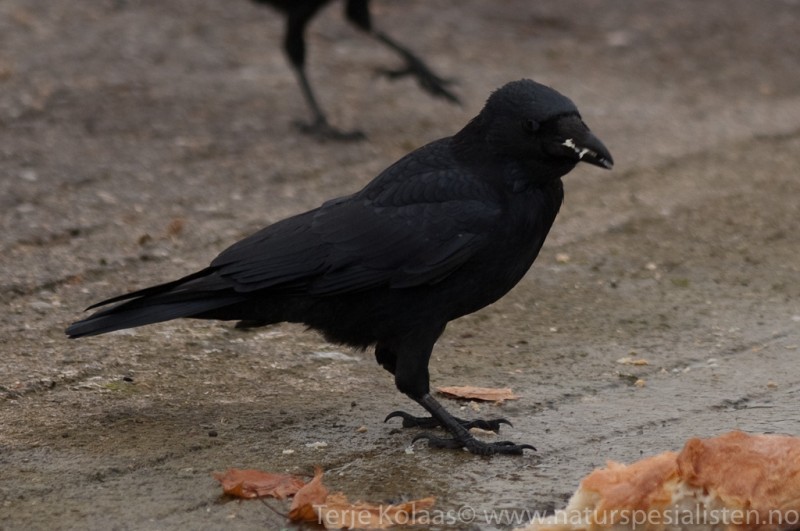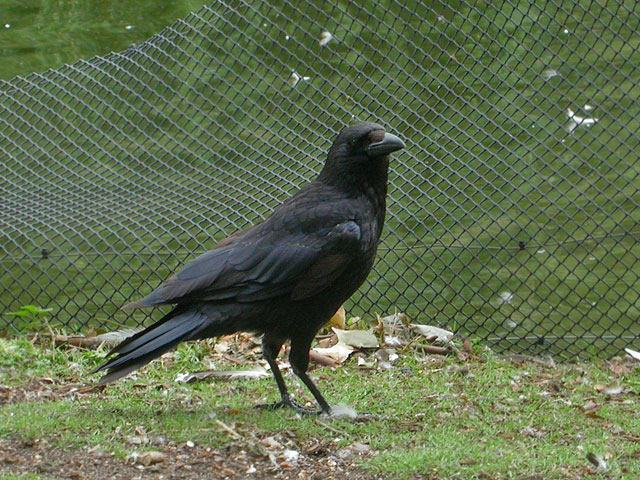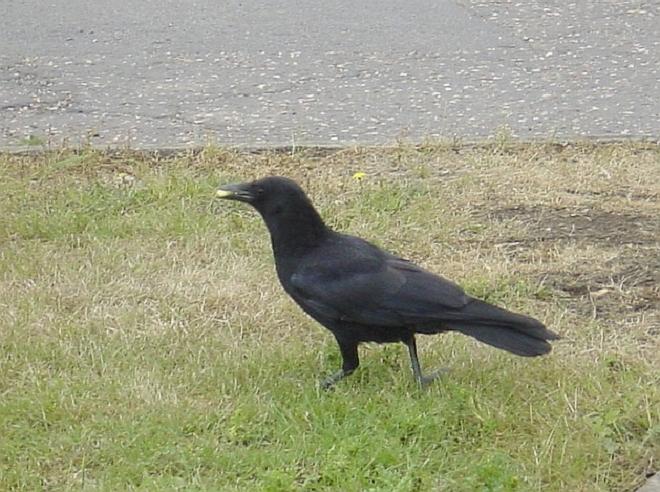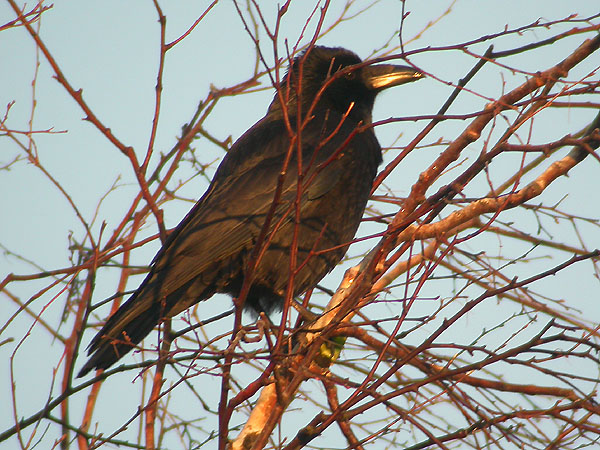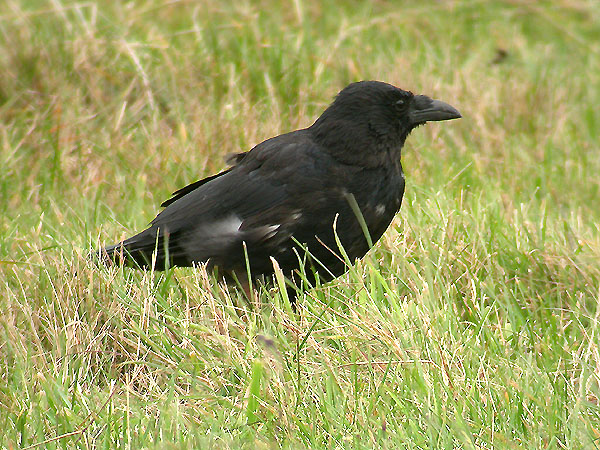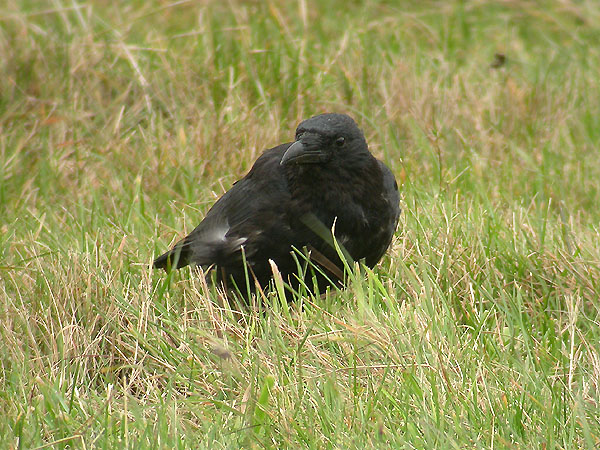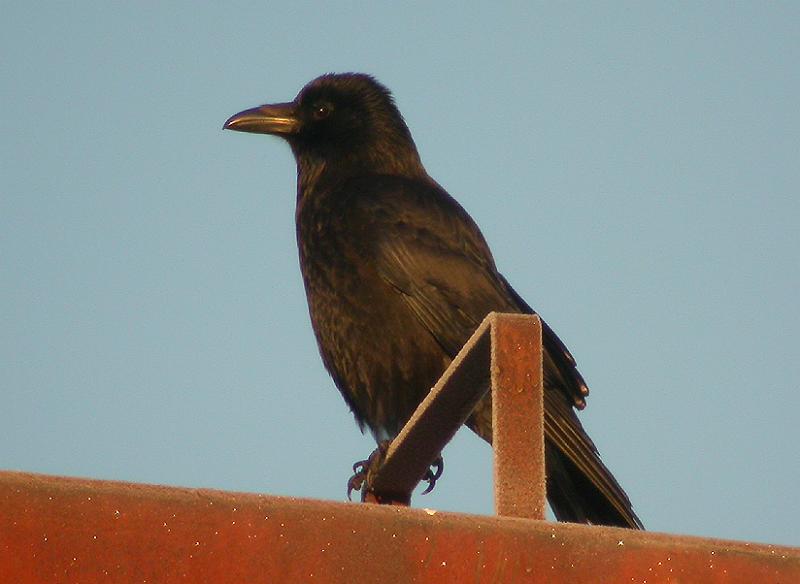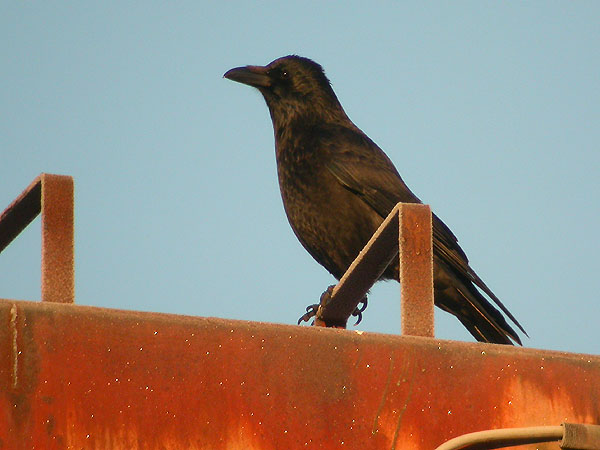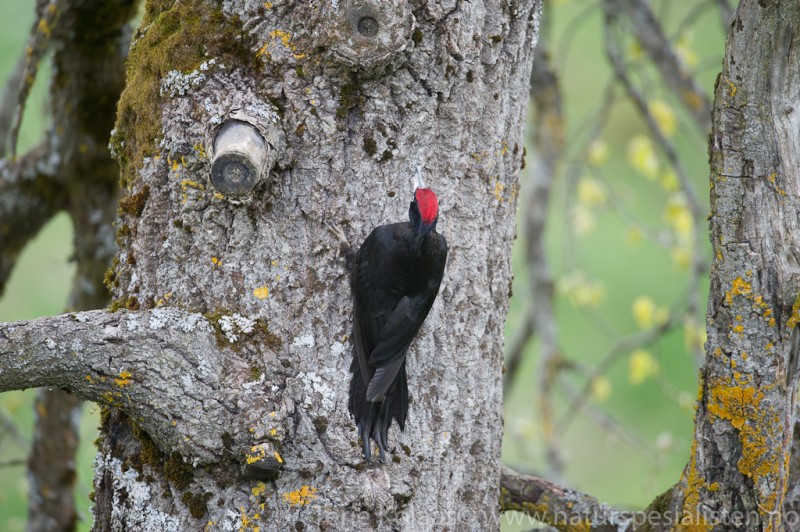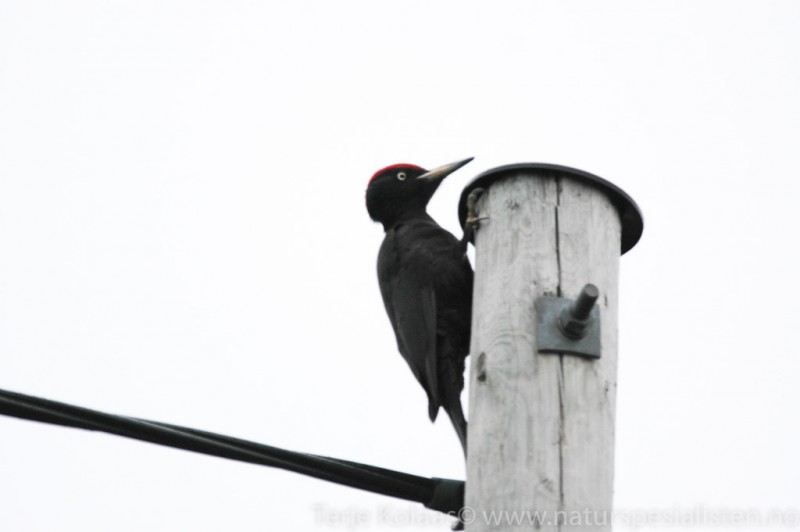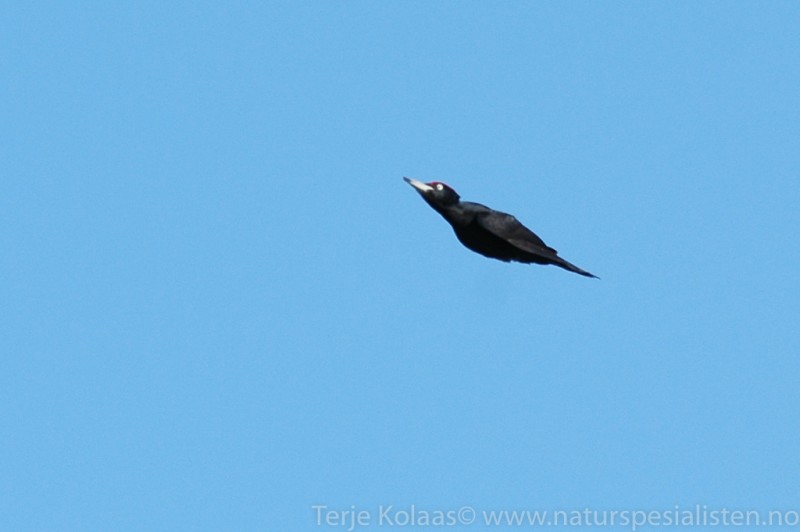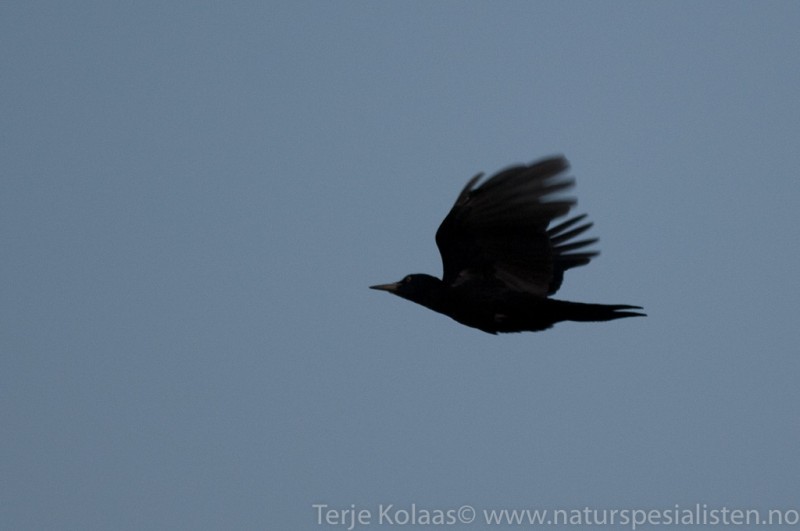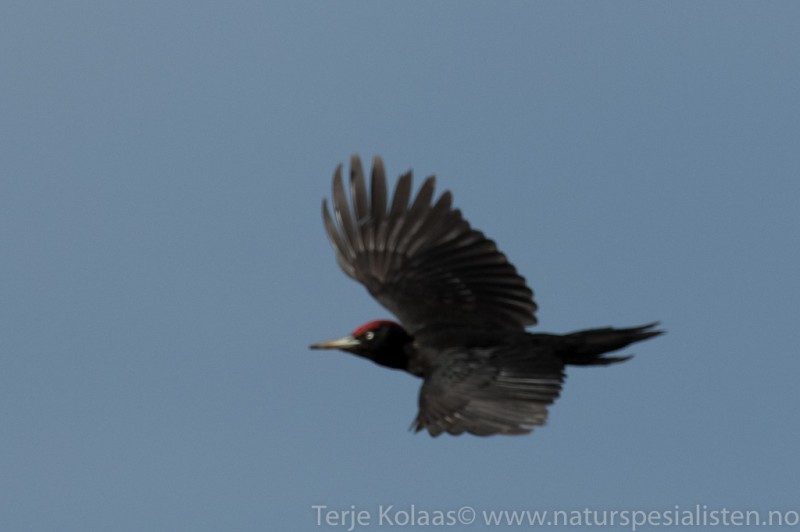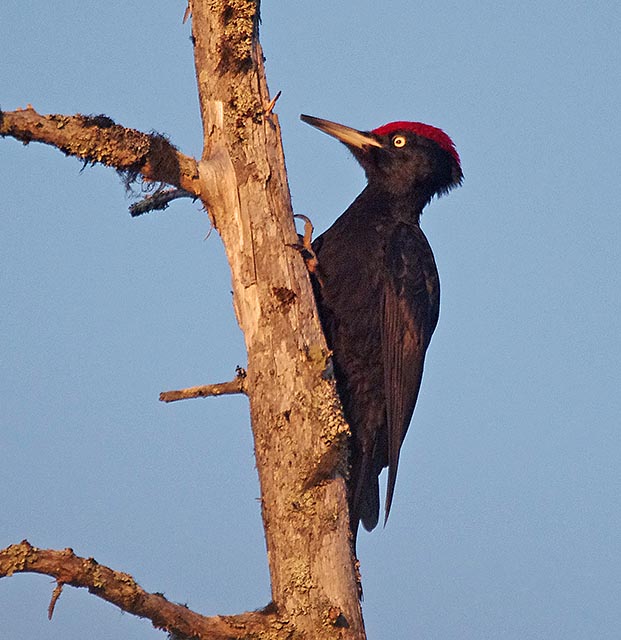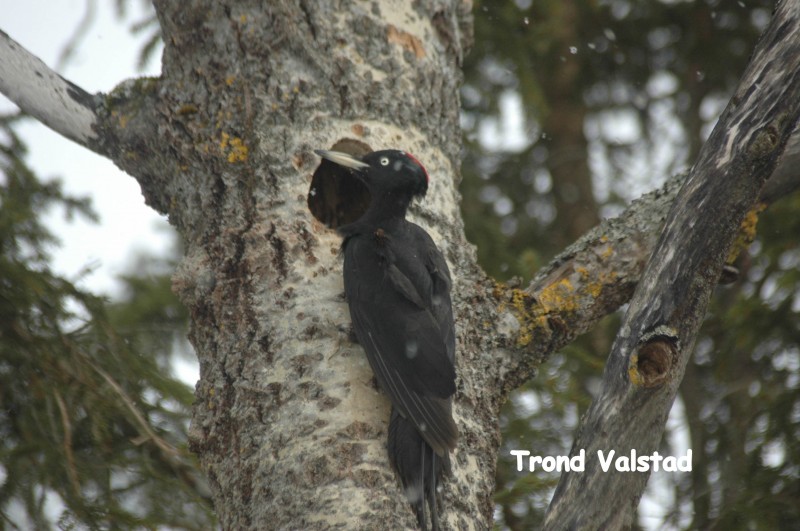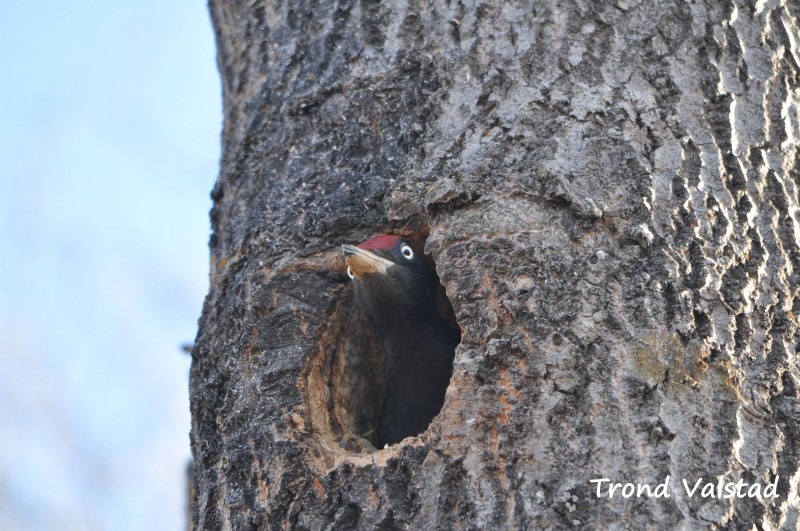Carrion Crow (Corvus corone)
Black Woodpecker (Dryocopus martius)
Very similar to Hooded Crow, apart from the all black plumage. Easily confused with young Rooks, since these lack the naked bill base and baggy trousers of adults. Carrion Crow differs from Rooks by deeper bill with a more curved upper mandible (bill of Rook conical). The wings are evenly broad, not more narrow closer to the body (difficult to judge). Carrion Crow shows no hint of crest, as is often seen in Rooks. Differs from Raven in less deep bill, no neck ruff and rounded, not wedge-shaped, tail.
Sound:Probably impossible to tell from Hooded Crow by sound with certainty, but tends to sound harder, and more mean.
Distribution:Wikipedia: map (se also Xeno-canto below)
Ecology:Birdlife ecology
Links:
Observation.org Latest observations
Image search Flickr NB! May give other species
CCBiggest woodpecker in WP (crow size). All black with red crown (male) or nape (female). Unmistakable. Flight Nutcracker-like, "inefficient" and fluttering, almost without undulations.
Sound:Most sounds diagnostic and very far reaching. Drumming very powerful and long (1.8 - 3 sec.) with slightly falling intensity and accelerated ending. Each beat clearly distinguishable as in Tree-toed Woodpecker, but duration much longer. Drumming:
Flight call a characteristic resonant trill "krrreekrrreekrrreekrrree". A characteristic short, sharp and plaintive "keeaaa" with descending pitch often uttered when excited. Song a quick series of "klee" calls resembling Green Woodpecker, but with a purer tone and upward infliction at end of each syllable. A few slower drawn-out introductory calls before the phrase gets going is diagnostic.
Excitement call, song, social sounds, flight call:
Distribution:
Wikipedia: map (se also Xeno-canto below)
Ecology:Birdlife ecology
Links:
Observation.org Latest observations
Image search Flickr NB! May give other species
CC
 English
English Albanian
Albanian
 Armenian
Armenian
 Bulgarian
Bulgarian
 Catalan
Catalan
 Croatian
Croatian
 Czech
Czech
 Danish
Danish
 Dutch
Dutch
 Finnish
Finnish
 French
French
 Georgian
Georgian
 German
German
 Greek
Greek
 Hungarian
Hungarian
 Italian
Italian
 Latvian
Latvian
 Lithuanian
Lithuanian
 Macedonian
Macedonian
 Norwegian
Norwegian
 Polish
Polish
 Portuguese
Portuguese
 Romanian
Romanian
 Russian
Russian
 Sami : Lule sami
Sami : Lule sami
 Sami : North sami
Sami : North sami
 Sami : South sami
Sami : South sami
 Scientific names
Scientific names
 Serbian
Serbian
 Spanish
Spanish
 Swedish
Swedish
 Ukrainian
Ukrainian


